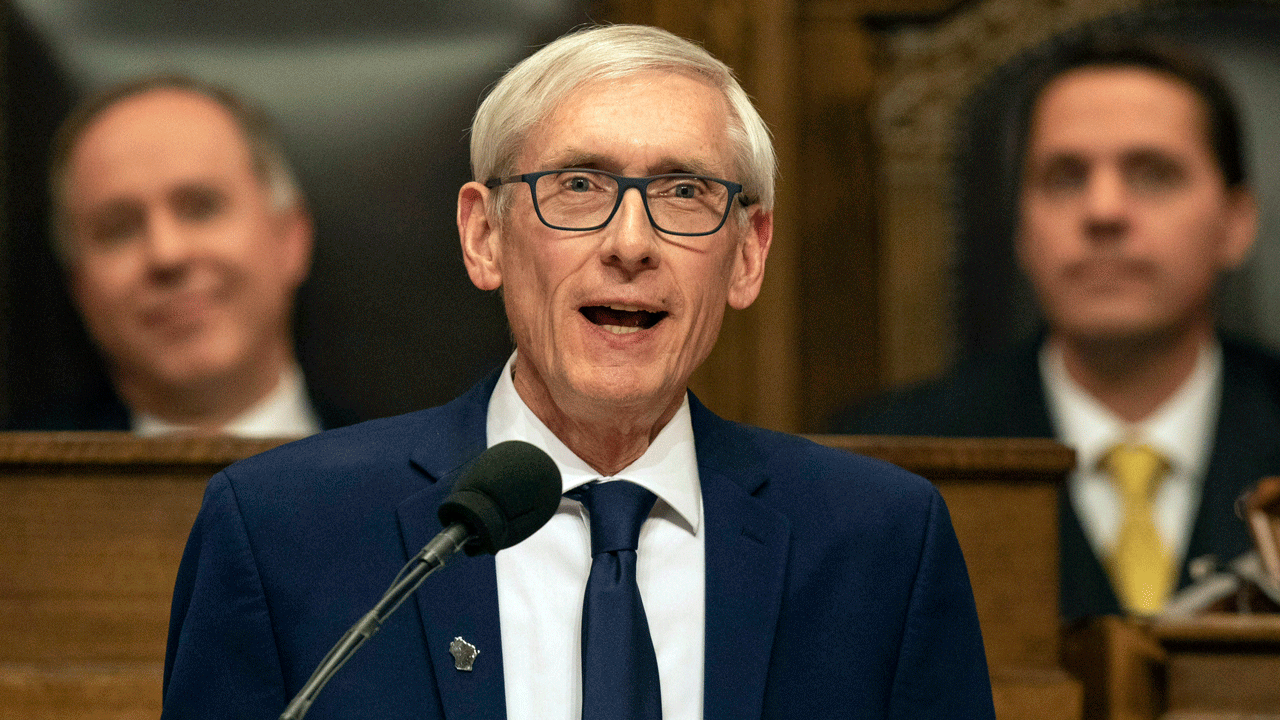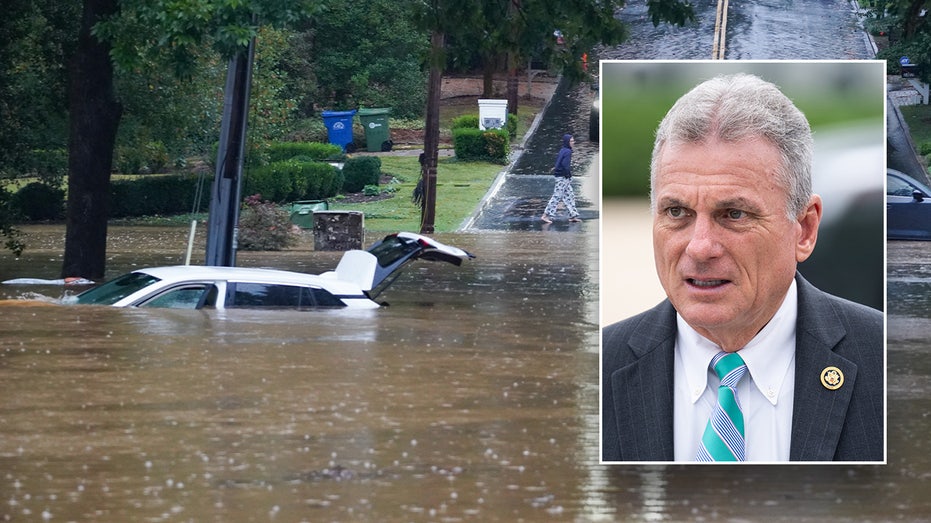Wisconsin’s Democratic Gov. Tony Evers vetoed 41 bills passed by the Republican-led Legislature on Friday — rejecting a $3 billion Republican tax cut, political loyalty pledges for higher education employees, and a plan setting how many wolves can be hunted each year.
Evers signed a bipartisan bill to provide $400,000 supporting Holocaust education in Wisconsin schools. A 2021 law requires teaching about the Holocaust in grades 5 through 12 statewide. The money approved by Evers will go to the Nathan and Esther Pelz Holocaust Education Resource Center to support that education.
He also signed a bipartisan bill designed to increase the number of mental health crisis centers across the state.
EVERS SIGNS NEW LAWS DESIGNED TO BOLSTER SAFETY OF JUDGES, COMBAT HUMAN TRAFFICKING
During more than five years as governor with a Republican-controlled Legislature, Evers has vetoed more bills than any governor in Wisconsin history.
Evers vetoed a bill that would have prohibited the Universities of Wisconsin and other higher education institutions from conditioning employment and admission decisions on diversity statements. Right now, UW doesn’t have any such spoken loyalty pledges in higher education, making the bill unnecessary, Evers said.
Republicans passed the measure as part of their effort both in Wisconsin and across the country to restrict diversity, equity and inclusion initiatives on university campuses.
Evers also vetoed a bill that would have allowed school boards to hire superintendents who don’t have a license from the state education department. Evers, who previously worked as a principal and school district superintendent, said he objected to not having standards for the position in charge of school operations.
Republican backers pitched it as a way to help deal with turnover in superintendent positions across the state.
The bill, opposed by groups representing school officials including superintendents, would have created the same exemption from the superintendent license requirement in place only at Milwaukee Public Schools, the state’s largest district.
Another bill signed by Evers would allow people to be charged fees to redact recorded audio and video content provided under open records requests. Media organizations and open records advocates opposed the bill. It passed with bipartisan support and was backed by law enforcement agencies.
Evers had vowed to veto the GOP tax cut bill, one of several tax cut measures passed by Republicans this session that the governor rejected.
The scuttled tax plan would have dropped the state income tax from 5.3% to 4.4% for individual income between $27,630 and $304,170, and for married couples between $18,420 and $405,550.
The bill would also have excluded the first $150,000 of a couple’s retirement income from taxes, which would apply to people over 67.
The measure would have reduced tax collections by $3.2 billion over two years, which the governor called “fiscally irresponsible” in his veto message. He said the state would’ve been unable to meet its basic obligations like funding schools and prisons.
Evers noted how earlier this month he did sign a more limited, bipartisan tax cut that will expand the state’s child care tax credit.
The wolf bill Evers vetoed would have required state wildlife managers to set a firm numeric goal for the state’s wolf population. Republicans passed the measure after the state Department of Natural Resources did not set a hard cap on the state’s wolf population in its new management plan.
State wildlife officials told lawmakers that a lack of a hard limit gives the DNR more flexibility to manage the species, allows local wolf packs to fluctuate and gives the population a better chance at maintaining wolf abundance for years to come.
Hunting advocates support setting a population limit, saying the lack of a goal leaves both wolves and people unprotected.
Evers, in his veto message, said setting a numeric goal does not consider the social, scientific, biological and legal complexities of a recovered wolf population. He also said he objected to the Legislature micromanaging the DNR.




